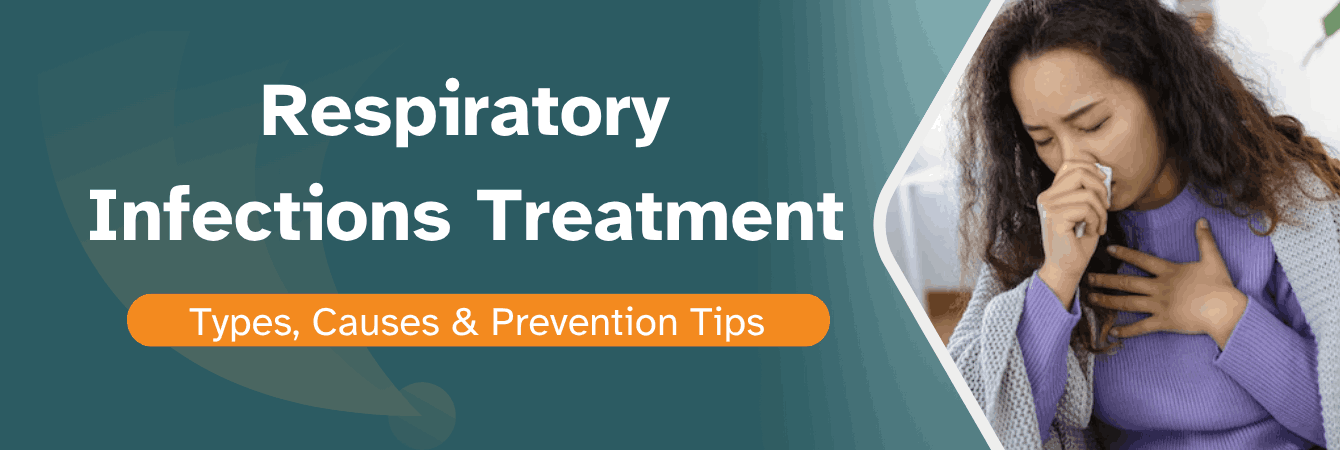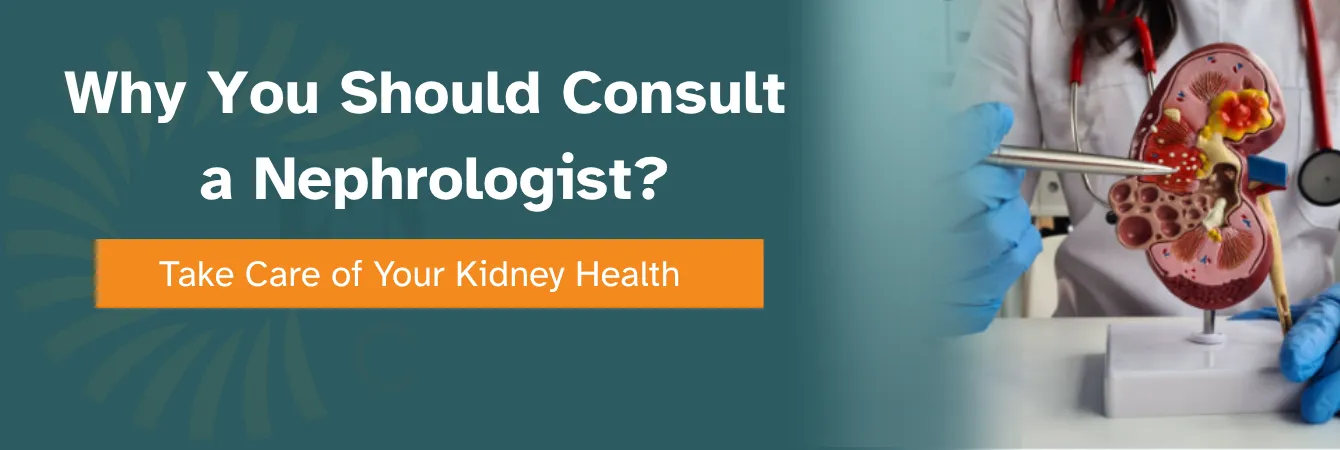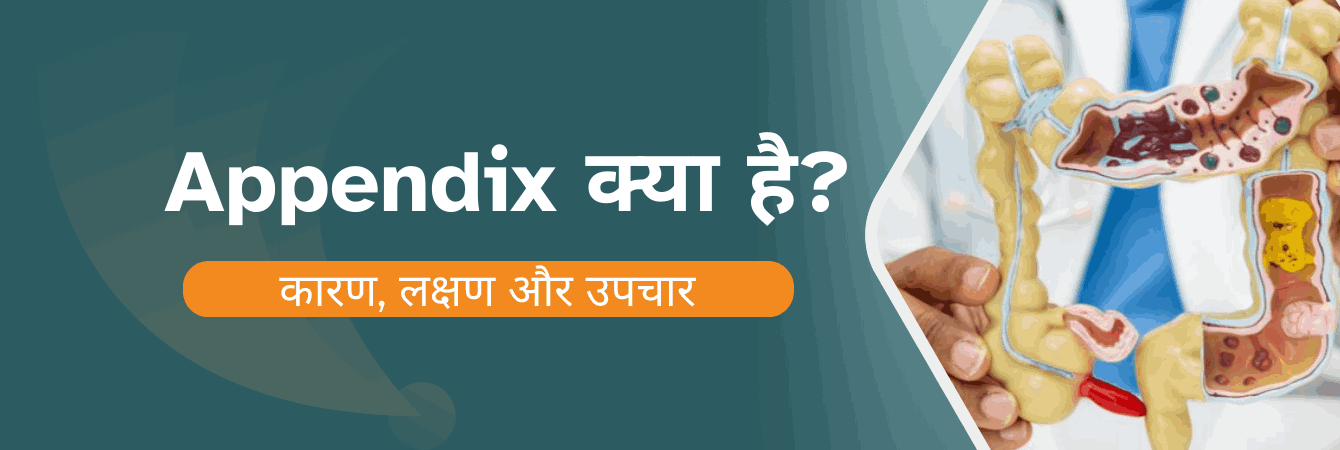Respiratory Infections Treatment: Types, Causes & Prevention Tips
- October 27, 2025
- Abrol Hospital
Understanding the Respiratory System
The respiratory system is one of the most vital systems in the human body. Its primary function is to take in oxygen and expel carbon dioxide — a process essential for every cell to function properly. The system includes the nose, sinuses, throat (pharynx), windpipe (trachea), bronchi, and lungs.
When air enters through the nose or mouth, it travels down the airways and reaches the lungs, where oxygen is absorbed into the bloodstream and carbon dioxide is released. However, this entire pathway is also exposed to the outside environment, making it susceptible to microbial infections such as viruses, bacteria, and fungi.
What Are Respiratory Infections?
A respiratory infection occurs when harmful microorganisms invade the respiratory tract, leading to inflammation and disruption of normal breathing. These infections are broadly classified into two categories:
Upper Respiratory Tract Infections (URTIs): These affect the nose, sinuses, and throat. Common examples include the common cold, sinusitis, and pharyngitis.
Lower Respiratory Tract Infections (LRTIs): These affect the lungs and bronchi, leading to more serious conditions such as bronchitis, pneumonia, and tuberculosis.
While mild infections often resolve on their own, severe infections can lead to breathing difficulties, high fever, and even long-term complications if not treated properly.
Common Types of Respiratory Infections
1. Common Cold
The most frequent type of respiratory infection, the common cold is caused by viruses such as rhinoviruses or coronaviruses.
Symptoms: Sneezing, sore throat, nasal congestion, mild fever, and fatigue.
Treatment: Rest, hydration, and over-the-counter medications for symptom relief.
2. Influenza (Flu)
Influenza is a viral infection that can spread rapidly, especially during seasonal outbreaks.
Symptoms: High fever, chills, muscle pain, cough, sore throat, and fatigue.
Treatment: Antiviral medications (if diagnosed early), rest, and fluids. Vaccination is the best preventive measure.
3. Sinusitis
Sinusitis occurs when the sinus cavities become inflamed due to infection or allergy.
Symptoms: Facial pressure, nasal congestion, thick mucus discharge, and headache.
Treatment: Decongestants, nasal sprays, and in some cases, antibiotics if bacterial.
4. Pharyngitis (Sore Throat)
Pharyngitis is the inflammation of the pharynx, often caused by viral or bacterial infections like streptococcus.
Symptoms: Throat pain, difficulty swallowing, and fever.
Treatment: Pain relievers, gargles, and antibiotics (only for bacterial causes).
5. Bronchitis
Bronchitis affects the bronchial tubes that carry air to the lungs.
Acute bronchitis usually follows a cold or viral infection, while chronic bronchitis is often caused by long-term irritants such as smoking.
Symptoms: Persistent cough, mucus production, chest discomfort, and wheezing.
Treatment: Cough medicines, bronchodilators, and lifestyle changes like quitting smoking.
6. Pneumonia
Pneumonia is a serious lung infection that can be bacterial, viral, or fungal in origin. It causes inflammation of the air sacs (alveoli), which may fill with pus or fluid.
Symptoms: High fever, chills, chest pain, productive cough, and shortness of breath.
Treatment: Depends on the cause — antibiotics for bacterial pneumonia, antivirals for viral pneumonia, and antifungals for fungal infections.
7. Tuberculosis (TB)
Tuberculosis, caused by Mycobacterium tuberculosis, remains a significant concern in Punjab and across India.
Symptoms: Persistent cough (more than 2 weeks), blood in sputum, night sweats, weight loss, and fever.
Treatment: Long-term antibiotic therapy under strict medical supervision. Early diagnosis and adherence to treatment are vital to prevent complications.
Causes and Risk Factors of Respiratory Infections
Respiratory infections are primarily caused by pathogens like viruses, bacteria, and fungi that spread through droplets when an infected person coughs, sneezes, or talks. However, several risk factors can make individuals more susceptible:
Poor air quality and pollution (common in urban Punjab areas)
Smoking or exposure to secondhand smoke
Weakened immune system (due to diabetes, HIV, or chronic illnesses)
Cold weather, which allows viruses to survive longer
Crowded living conditions and poor ventilation
Allergies or chronic respiratory diseases such as asthma or COPD
Respiratory Infection Treatment in Punjab – Expert Care at Abrol Hospital, Gurdaspur
If you or your loved one is suffering from chronic cough, fever, or breathing problems, Abrol Hospital Gurdaspur provides advanced respiratory infection treatment with modern diagnostic tools and experienced pulmonologists.
The hospital offers comprehensive care for all types of respiratory infections — from bronchitis and pneumonia to tuberculosis — ensuring accurate diagnosis, personalized treatment plans, and effective recovery.
For consultation or respiratory infection treatment in Punjab, visit Abrol Hospital, Gurdaspur, where expert care meets compassion.


Dr. Ajaypal Singh
Specialties : Consultant Pulmonologist
FAQs About Morning Sickness during Pregnancy
Common respiratory infections include the common cold, flu, sinusitis, sore throat, bronchitis, pneumonia, and tuberculosis. Some are mild, while others can become serious if not treated on time.
Yes, most respiratory infections spread through coughing, sneezing, or contact with infected surfaces. Good hygiene and mask use can help prevent transmission.
You should consult a Pulmonologist or Chest Specialist. Abrol Hospital, Gurdaspur has expert pulmonologists offering advanced care for all types of respiratory infections.
Watch for high fever, shortness of breath, chest pain, or coughing blood. These signs may indicate pneumonia or other severe infections needing immediate care.
Yes. Smoke and air pollution damage lung tissues, making the body more prone to infections and long-term respiratory diseases.
Doctors may use chest X-rays, sputum tests, throat swabs, or blood tests to find the cause of infection and decide the right treatment.
Practice good hygiene, wash hands often, avoid smoking, stay hydrated, get vaccinated, and eat a balanced diet to boost immunity.



